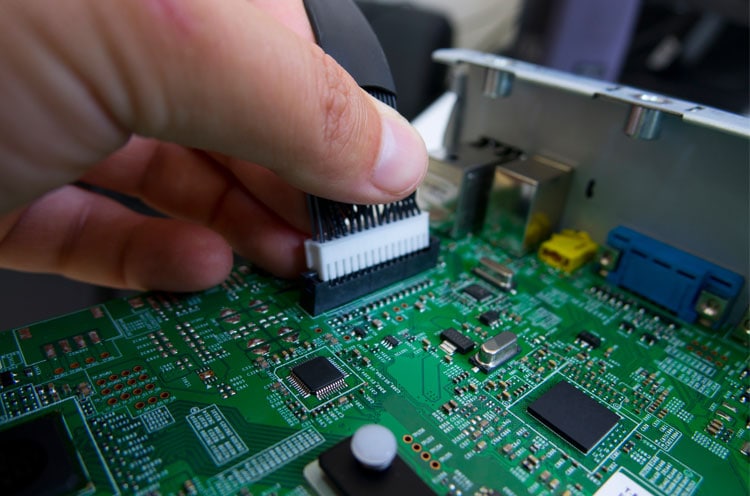High frequency PCB turnkey manufacturing has emerged as a cornerstone in the electronics industry, especially for those looking to streamline their production processes. This method not only reduces time but also enhances product quality. Turnkey manufacturing refers to a process where a single provider handles all aspects of the production, from design to delivery. This approach is particularly beneficial for companies dealing with high-frequency PCBs, which require precision and expertise.

Understanding High Frequency PCBs
High frequency PCBs are used in applications that require fast signal flow rates, such as radio frequency (RF) and microwave circuits. These PCBs are crucial in sectors like telecommunications, aerospace, and military. The complexity of these circuits demands a high level of expertise and precision in manufacturing.
Key Benefits of Turnkey Manufacturing
One of the primary advantages of turnkey manufacturing is its ability to consolidate multiple production phases into a single, streamlined process. This leads to reduced lead times and costs. For companies, this means faster time-to-market and fewer logistical headaches.
Components of Turnkey Solutions
Design and Prototyping
In the initial stages, the design and prototyping are crucial. These processes help in identifying potential issues early on, saving time and resources in the long run. You can read more about the importance of this stage in our article on prototype vs mass production.
Material Selection
The choice of materials significantly influences the performance of high-frequency PCBs. Materials such as PTFE (Teflon) and FR4 are commonly used for their excellent dielectric properties and low signal loss.
Manufacturing Process
The manufacturing process in a turnkey solution involves several stages, each critical to the final product’s performance. This includes etching, drilling, and plating, all of which must be performed with high precision.
Assembly and Testing
After manufacturing, the PCBs undergo assembly and rigorous testing to ensure they meet the required specifications. Testing includes checking for signal integrity and thermal performance, which are crucial for high-frequency applications.
Why Choose Turnkey for High Frequency PCBs?
Turnkey manufacturing offers numerous benefits, especially for high-frequency PCBs. It provides a one-stop solution, reducing the need for multiple vendors and thereby simplifying the supply chain. This is particularly advantageous when dealing with complex products that require a high level of coordination and expertise.
Cost-Effectiveness
By consolidating processes, companies can achieve significant cost savings. Turnkey solutions eliminate the need for multiple contracts, reducing administrative and logistical costs.
Quality Assurance
With a single entity responsible for the entire production process, quality assurance becomes more manageable and reliable. This ensures that the final product meets all industry standards and client specifications.
Time Efficiency
The streamlined nature of turnkey manufacturing significantly reduces production times, allowing companies to bring products to market faster. This is a crucial advantage in today’s fast-paced electronic markets.
Challenges in High Frequency PCB Turnkey Manufacturing
Despite its advantages, high frequency PCB turnkey manufacturing is not without challenges. These include the need for precise material handling and the complexity of manufacturing processes.
Material Handling
Handling materials like PTFE requires specialized equipment and expertise, as these materials can be difficult to work with. Any mistakes in material handling can lead to significant performance issues in the final product.
Complex Manufacturing
The intricate nature of high-frequency PCBs demands precision and accuracy in manufacturing. This requires state-of-the-art equipment and skilled personnel to ensure that the final product meets the necessary specifications.
Conclusion
In conclusion, high frequency PCB turnkey manufacturing offers a comprehensive solution for companies looking to streamline their production processes. With its many advantages, including cost savings, quality assurance, and time efficiency, it’s no wonder that more businesses are turning to turnkey solutions for their high-frequency PCB needs.

FAQs
What is high frequency PCB?
High frequency PCB refers to circuit boards designed to handle high signal flow rates, commonly used in RF and microwave applications.
How does turnkey manufacturing benefit the electronics industry?
Turnkey manufacturing consolidates all production processes, reducing costs and lead times while improving quality assurance.
What materials are used in high frequency PCBs?
Common materials include PTFE and FR4, chosen for their excellent dielectric properties and low signal loss.
Where can I find more information on turnkey solutions?
You can explore more about turnkey solutions on Silk Bridge Ltd.


